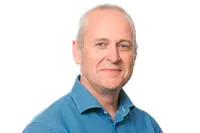 A business built on the premise of licensing IP can prove lucrative, as evidenced by ARM’s latest financial report. But when the number of deals signed declines, times can be tough, as Imagination Technologies has found out.
A business built on the premise of licensing IP can prove lucrative, as evidenced by ARM’s latest financial report. But when the number of deals signed declines, times can be tough, as Imagination Technologies has found out.
ARM says its Q4 2015 revenues grew by 19% to £269.1million. In dollar terms, revenues rose by 14% to $407.9m. For its 2015 financial year, revenues were £968m (+22% over 2014) or $1.489billion (+15%).
Amongst the highlights identified by the company are 51 new processor licences, including one architecture licence for the V8-M core. It notes that 4bn ARM based chips shipped during the quarter, 16% more than the same quarter in 2014.
Imagination Technologies, the UK’s second largest IP developer, is not seeing the same degree of financial success and there have been rumblings over the last few months about its financial performance. Much like ARM, the company is dependent mainly upon licensing revenues and royalties. But while ARM diversified its business some years ago, Imagination’s business model still relies on deals that sees its graphics IP integrated into high volume consumer electronics devices. As such, it is somewhat hostage to fortune.
In December 2015, Imagination reported a loss for the six months ended 31 October 2015 and, in its latest statement, says it expects to report a loss for its financial year. Crucially, the statement also noted ‘the pace of deal closure is falling short of prior expectations’. When you don’t close deals, you don’t make revenue and investors want action. In this case, it was removing chief executive Sir Hossein Yassaie.
ARM’s CEO Simon Segars said: “Demand for our technology is increasing and, during the quarter, we signed multiple licences for the next generation of high performance and secure ARM processors. Our increased investments in both 2015 and 2016 will help us meet demand by extending the capabilities of our technology and the ecosystem and will support long term growth.”
Pete Hutton, president of ARM’s product groups, said he was ‘quite happy with the numbers’. “Revenue is good and we are delivering strongly in terms of acquisitions, R&D investment and addressing new markets. We are making progress in the networking sector and doing well in servers.”
According to Hutton, the v8-M architectural licence – not signed by a supplier to the auto industry – represented the desire of some companies to do something different, but to retain the ability to take advantage of the ARM ecosystem. “Although targeted initially at the automotive sector, we’re seeing v8-M in the IoT because we want security in all our devices.”
ARM also announced that Qualcomm was the first company to take advantage of a new licence option called Built on ARM Cortex Technology. Hutton explained. “Some customers want to take a processor core and customise it for specific applications. Unlike the architectural licence, the customisation work is done by ARM.” According to ARM, Qualcomm has signed a deal which covers multiple ARM processors.
Despite scepticism in some quarters, Hutton remains bullish about ARM’s prospects in data centres. “We have seen large deployments of initial silicon and one reason why we have been adding engineering resource is to help customers get their designs to volume. We will see developments over the next few quarters and a lot of applications coming online.”
ARM has also signed its first physical IP licence for 7nm technology with an unnamed foundry. Concluding, Hutton said 7nm was not as far away as people might think.
Pic: “We are making progress in the networking sector and doing well in servers.” Pete Hutton
Author
Graham Pitcher
Source: www.newelectronics.co.uk

